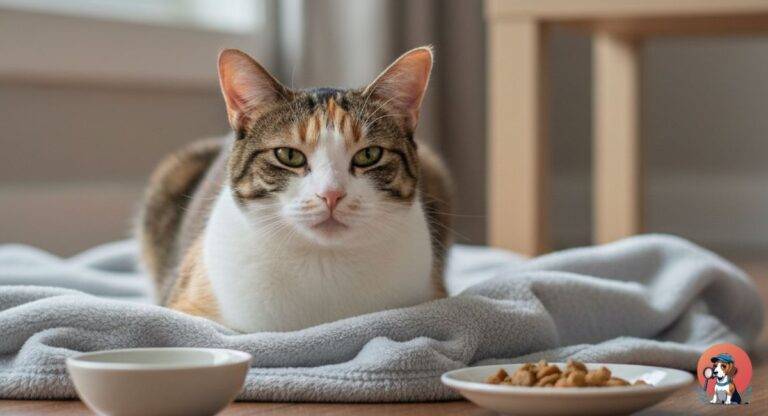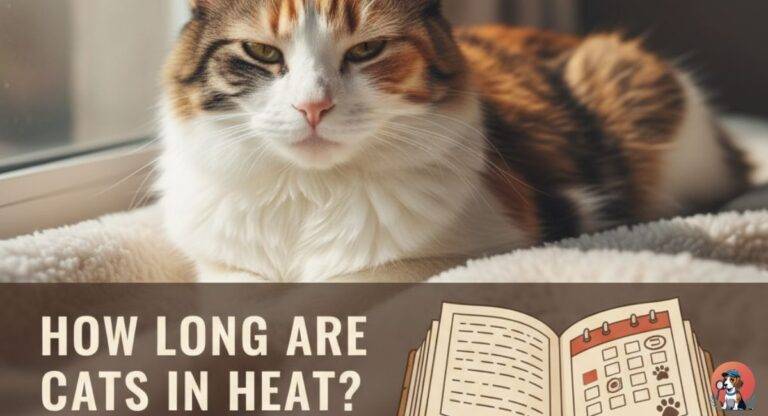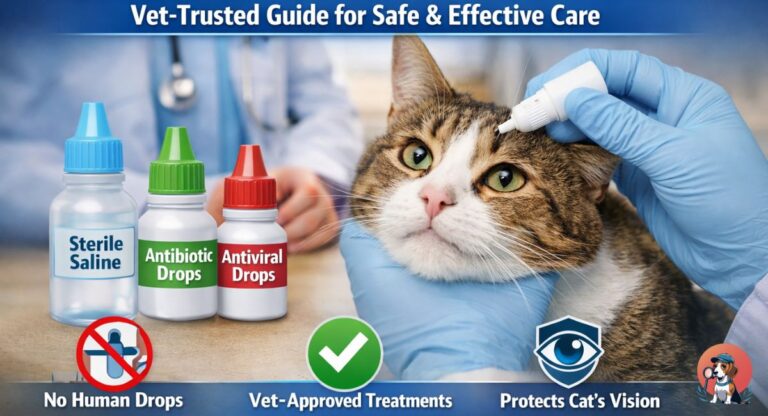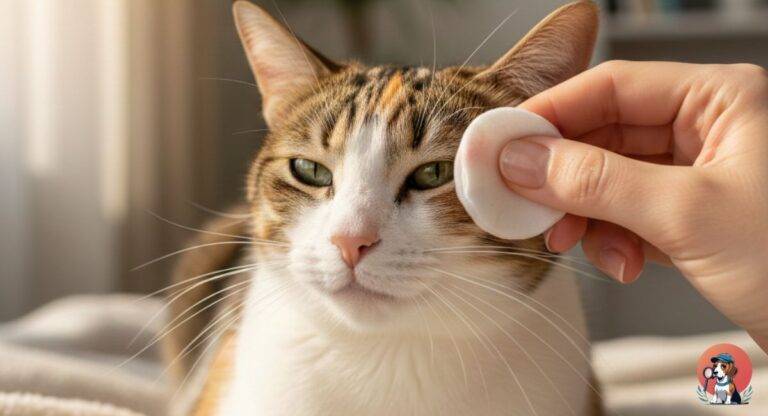Why Is My Cat Lethargic? If your cat suddenly seems unusually tired, lacks energy, or shows little interest in playing, it may be more than just normal sleepiness. Cats naturally sleep a lot—sometimes up to 16 hours a day—but persistent lethargy in cats can indicate underlying health problems that need attention.
Noticing these early signs can help prevent serious complications, keep your cat comfortable, and ensure they maintain a healthy, active lifestyle. Even small changes in energy or behavior can reveal something important, so monitoring your feline closely is crucial.
Quick Summary
-
Persistent low energy is not normal
-
Changes in appetite or thirst often follow
-
Early veterinary care prevents serious illness
-
Lethargy lasting more than 24 hours should never be ignored
Quick Red Flags to Watch:
-
Your cat is unusually inactive for more than 24 hours
-
Sudden weight loss or gain
-
Loss of appetite or changes in water intake
-
Breathing difficulties or unusual posture
If your cat feels “not themselves” for more than 24 hours, don’t wait—early intervention can save lives.
How to Know if Your Cat Is Lethargic
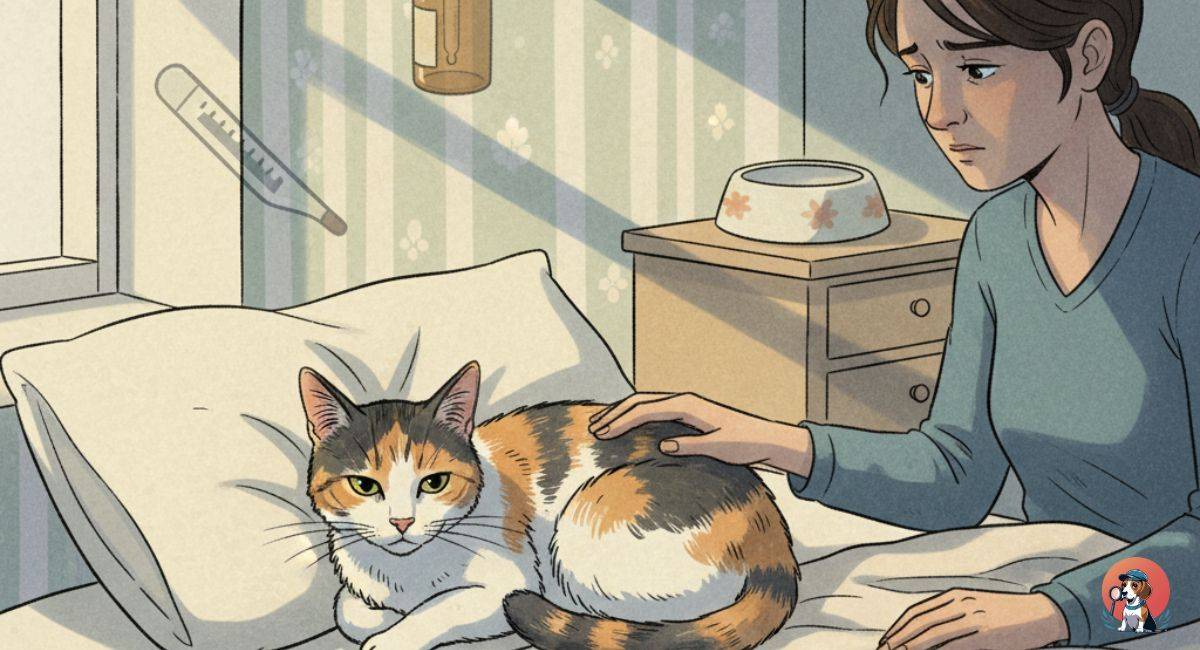
Lethargy in cats can be subtle. Normal cats sleep 12–16 hours daily, but behavior changes are key. Watch for:
-
Reluctance to move or leave their favorite spots
-
Slower walking or jumping
-
Hiding more than usual
-
Ignoring toys, food, or interaction
-
Sleeping significantly more than normal
-
Weak response when called or touched
Lethargy lasting more than 24 hours, especially with other symptoms, should never be ignored.
Changes in Grooming Behavior in Lethargic Cats
A healthy cat spends time grooming itself daily. Lethargic cats may show reduced grooming, greasy fur, or uneven coat texture. Mats or unkempt fur can signal pain, discomfort, or illness.
Paying attention to grooming changes is an early indicator that something may be wrong, even before other symptoms appear.
Top 8 Causes of Cat Lethargy
1. Infections
Viral or bacterial infections can drain your cat’s energy. Cats fight infections by resting more to conserve energy for recovery. Common infections include:
-
Respiratory infections (sneezing, coughing)
-
Urinary tract infections (frequent urination, discomfort)
-
Digestive infections (vomiting or diarrhea)
Early treatment ensures faster recovery and prevents complications.
2. Anemia / Low Red Blood Cells
Low red blood cells reduce oxygen supply to the body, making cats feel weak and tired. Causes of anemia include:
-
Parasites (fleas, ticks, worms)
-
Chronic illness
-
Blood loss
Symptoms can also include pale gums, rapid breathing, and decreased activity.
3. Blood Sugar Issues / Diabetes
Diabetes in cats can cause excessive thirst, frequent urination, and low energy levels. Older or overweight cats are at higher risk. Signs include:
-
Increased water intake
-
Sudden weight loss
-
Poor coat condition
Proper management with insulin and diet control can restore energy and health.
4. Heart Problems
Heart disease reduces oxygen and nutrient supply to tissues, leading to fatigue and reduced activity. Symptoms are often subtle until the condition worsens. Watch for:
-
Rapid breathing or coughing
-
Lethargy during play
-
Swollen abdomen
Regular vet check-ups can detect early heart issues before severe complications occur.
5. Urinary Tract Infections
Painful urinary tract infections make cats avoid movement and may cause excessive hiding. Male cats are particularly prone. Untreated infections can lead to kidney problems or blockages.
6. Respiratory Issues
Conditions such as asthma, lung fluid, or infections can make breathing harder, leaving cats exhausted. Look for:
-
Wheezing
-
Rapid breathing
-
Blue-tinged gums
Immediate veterinary care is crucial if respiratory distress is observed.
7. Toxic Exposure
Cats are naturally curious and may ingest harmful substances. Toxic exposure can cause sudden lethargy, vomiting, diarrhea, or even collapse. Common culprits:
-
Human medications
-
Household chemicals
-
Certain plants
Quick intervention can save your cat’s life in these cases.
8. Thyroid / Hormonal Problems
Hypothyroidism or other hormonal imbalances can make cats sluggish, cause weight gain, and alter appetite. Proper treatment restores energy, activity, and overall health.
Symptoms That Accompany Lethargy
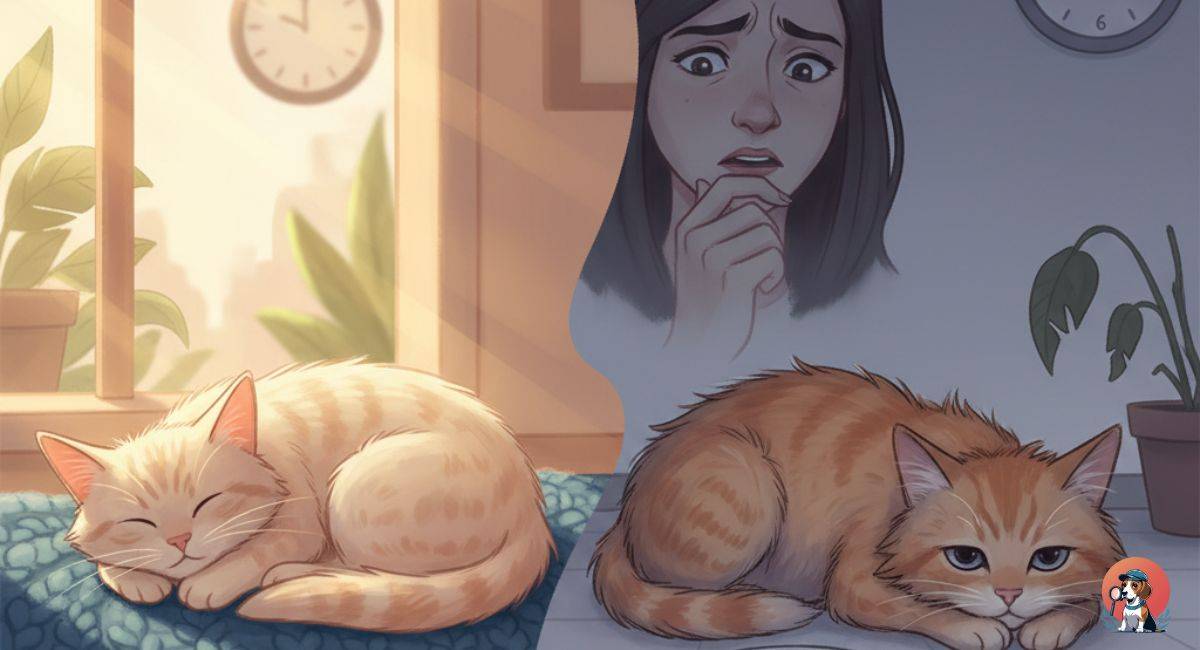
-
Behavioral changes: Less interaction, hiding, ignoring toys
-
Appetite changes: Eating less or more than usual
-
Thirst changes: Increased or decreased water intake
-
Digestive issues: Vomiting, diarrhea, or constipation
-
Breathing problems: Panting, wheezing, or difficulty breathing
When to See a Vet
Seek immediate veterinary care if your cat shows:
-
Sudden weakness or collapse
-
Extreme unresponsiveness or confusion
-
Rapid or difficult breathing
-
Severe pain or vocal distress
-
Persistent vomiting or diarrhea (>24 hours)
If your cat feels “not themselves” for more than 24 hours, don’t wait—early care saves lives.
What to Do at Home
-
Provide a quiet, comfortable space for rest
-
Encourage hydration and small, bland meals
-
Monitor appetite, vomiting, and stool changes
-
Consult a veterinarian if lethargy persists after 24 hours
Vet Treatments for Lethargy
Veterinarians may perform:
-
Physical exams (temperature, heart rate, lymph nodes)
-
Blood and urine tests
-
Imaging (X-ray, MRI) if needed
Treatment depends on the cause:
-
Fluids, hospitalization, or antibiotics
-
Pain relief and anti-inflammatories
-
Surgery or specific medications
Most cats recover well when the underlying cause is treated early.
Tips to Prevent Lethargy
-
Annual vaccinations
-
Regular parasite prevention
-
Balanced, high-quality cat food
-
Avoid toxins and wild animal exposure
-
Reduce environmental stress
-
Joint supplements for older cats
Helpful Guides:
What can I give my cat to sleep at night
FAQs
Q1: Can fleas cause lethargy in cats?
Yes, prolonged flea infestations can drain energy.
Q2: Can antibiotics cause lethargy?
Yes, certain medications may temporarily reduce energy levels.
Q3: Can ear infections cause lethargy?
Yes, ear infections can reduce energy and appetite.
Q4: Can diet changes cause lethargy?
Improper nutrition may lead to weakness or fatigue.
Q5: Can allergies make my cat lethargic?
Yes, allergies can affect energy and overall well-being.
Conclusion / Key Takeaways
Persistent cat lethargy is never normal. Causes range from infections, hormonal imbalances, and heart problems to toxic exposure.
If lethargy lasts more than a day or is accompanied by other symptoms, a vet visit is the safest step. Early detection and treatment keep your cat healthy, happy, and full of energy.

